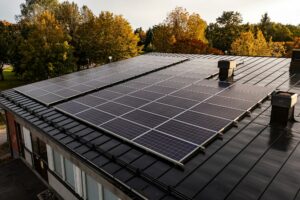As we enter the second fiscal quarter of 2024, solar energy continues to surge in popularity, driven by increasing environmental concerns and advancements in technology. With this in mind, here’s a comprehensive look at some frequently asked questions (FAQs) about solar energy in 2024.
Solar energy is expected to maintain its upward trajectory in 2024, with continued growth in installations worldwide. Analysts anticipate further declines in the cost of solar panels, making solar energy increasingly competitive with conventional sources of electricity.
Innovations in battery storage technologies are also expected to enhance the reliability and efficiency of solar power systems.
This year, one of the most exciting advancements in solar technology is the emergence of higher efficiency and lower production cost of perovskite solar panels compared to traditional silicon-based solar panels.
Perovskite solar cells are also flexible, lightweight, and can be easily integrated into various surfaces, expanding the possibilities for solar energy generation.

Yes, the cost of solar energy is projected to decrease further in 2024, driven by:
As manufacturing processes become more efficient and materials become more abundant, the upfront cost of installing solar panels is expected to decrease by 35% this year, making solar energy more accessible to a wider range of consumers.
The best months for solar production typically coincide with the sunniest periods of the year, which vary depending on the region. In general, spring and summer months tend to offer the highest solar energy production due to longer daylight hours and more direct sunlight.
Conversely, the worst months for solar energy production usually occur during the winter season when days are shorter, and the sun is lower in the sky. Also, regions with significant cloud cover or frequent precipitation may experience reduced solar output during certain months.
Solar panels are designed to be durable and long-lasting, with most manufacturers offering warranties ranging from 20 to 25 years. While solar panels may experience some degradation in performance over time, modern panels are built to withstand harsh weather conditions and require minimal maintenance.
Pro Tip: With proper installation and regular maintenance, solar panels can continue to generate electricity efficiently for decades.
The solar energy landscape in 2024 is characterized by:
With advancements in solar panel technology and storage solutions, solar energy is becoming an increasingly viable option for homeowners, businesses, and governments looking to transition to renewable energy sources.
By addressing common questions, embracing the latest trends, and contacting Gurr Brothers Energy, you can harness the power of the sun to create a more sustainable future!
Author: Hunter S.
Give Gurr Brothers Energy a call today and let’s start powering your life with sunshine!